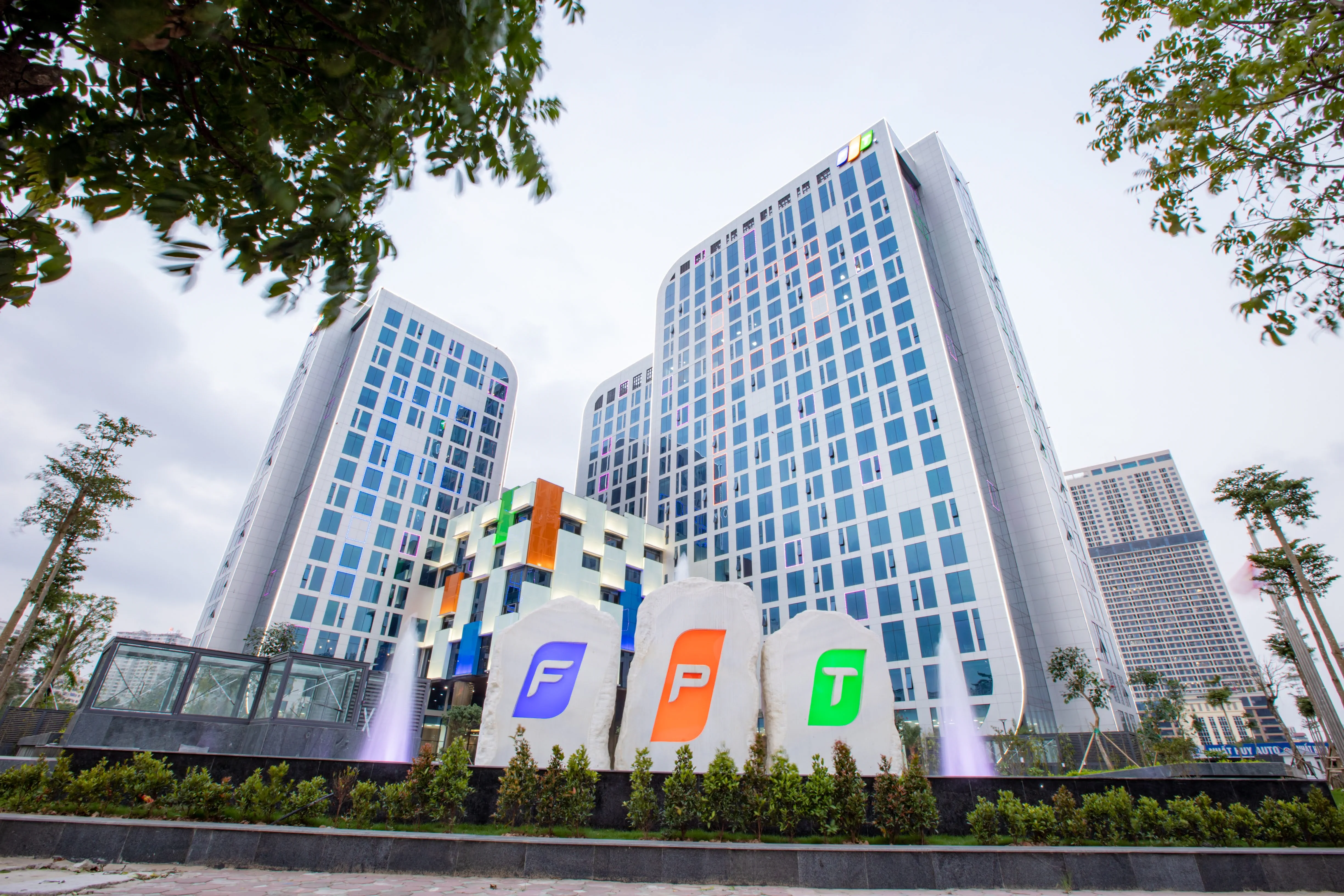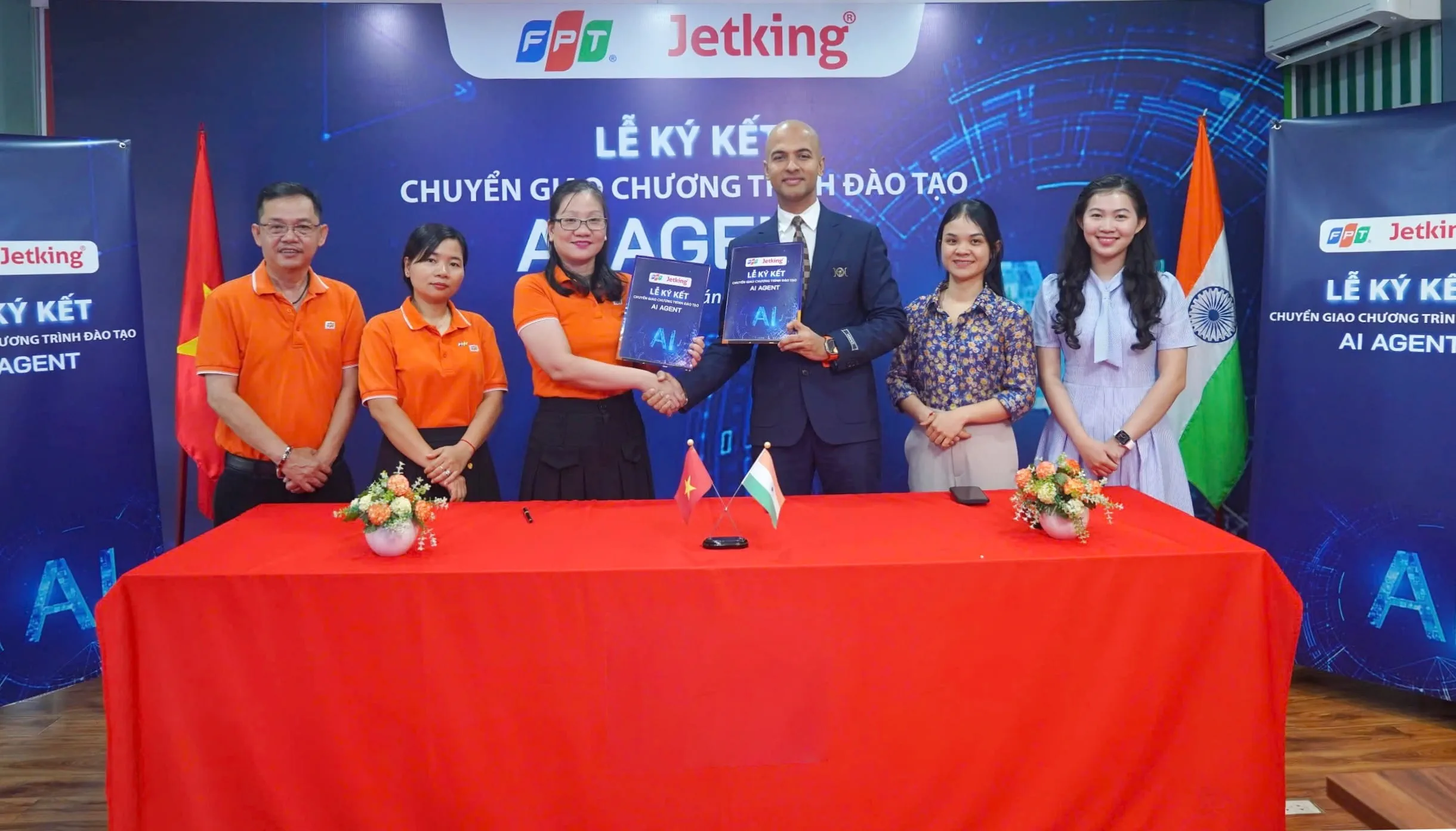FPT has many advantages in building smart city
Urbanization is taking place rapidly and drawing much attention of countries. In Vietnam, this process has got some positive steps. Understanding the local habits is one of FPT’s "natural advantages" compared with foreign enterprises participating in this process.
•
31/08/2015
Urbanization is taking place rapidly and drawing much attention of countries. In Vietnam, this process has got some positive steps. Understanding the local habits is one of FPT’s "natural advantages" compared with foreign enterprises participating in this process.
Held on August 28 in Melia Hotel, Hanoi, the workshop themed Smart city: Practice and international experience, prospect in Vietnam attracted more than 60 representatives from 20 ministries and agencies, 10 provinces, cities and international experts. FPT became the main sponsor of the program.
According to Mr. Nguyen Thien Nhan, Member of the Political Bureau cum Chairman of the Central Committee of Vietnam Fatherland Front, managing urban areas was managing the driving power of the country. In particular, the four emerging issues included increased urbanization; old and overloaded infrastructure; economic competition among cities and regions; people's increasing demands for the quality of life.
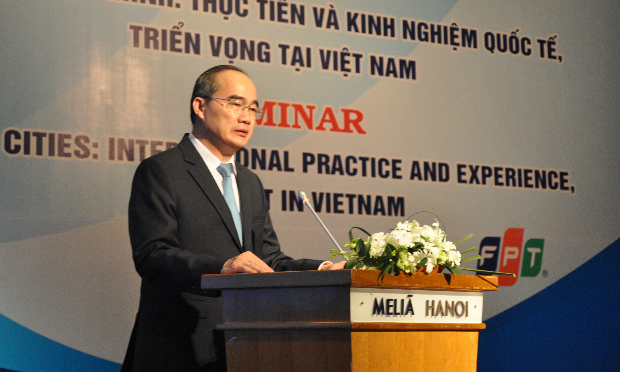
According to Mr. Nhan, in order to build smart cities, it is inevitable to apply information and communications technology.
In the world, the process of urbanization had been taking place rapidly. In mid-20th century, only 17% of population lived in urban areas, at present, the figure was up to 55%. They helped generate more than 80% of global GDP. Urban management is increasingly drawing much attention of the governments, the people in many countries. Many developing countries built and developed smart cities such as the European Union, USA, South Korea, Japan, and Singapore etc/
"In Vietnam, managing city is managing 15% of the country’s total area, 50% of the population and 70-80% of economic resources and budget. Starting to build smart cities from small ones or megacities is the emerging issue we need to plan for next 15 years. How do we hit four main goals: enhancing economic efficiency, bettering environment; improving services and more involvement of the people in monitoring the government?" said he.
According to Mr. Nhan, in order to take advantage of opportunities that smart cities bring about as well as face challenges and risks that they cause, the government must plan cities in a smart way while enterprises must operate smart, people live and work smart. In this context, it is inevitable to apply information and communications technology to building smart cities.
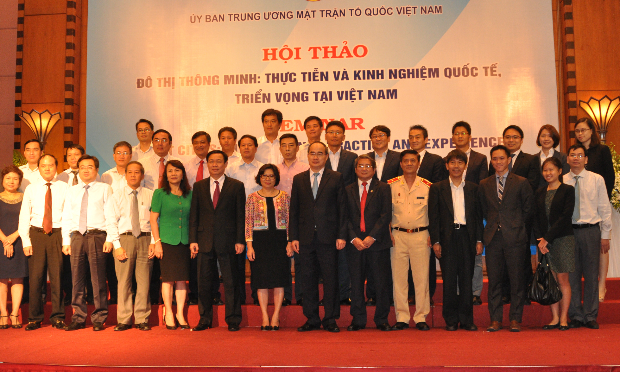
Held on August 28 in Melia Hotel, Hanoi, the workshop themed Smart city: Practice and international experience, prospect in Vietnam attracted more than 60 representatives from 20 ministries and agencies, 10 provinces, cities and international experts. FPT became the main sponsor of the program
FPT CEO Bui Quang Ngoc agreed with this statement. He said that the country went through many stages of development; smart city is now the "digital economy" with many challenges and opportunities. Vietnam could create a competitive advantage by applying IT when joining this process.
"The government plays the most important role while businesses give advice, providing technology solutions," said Mr. Ngoc.
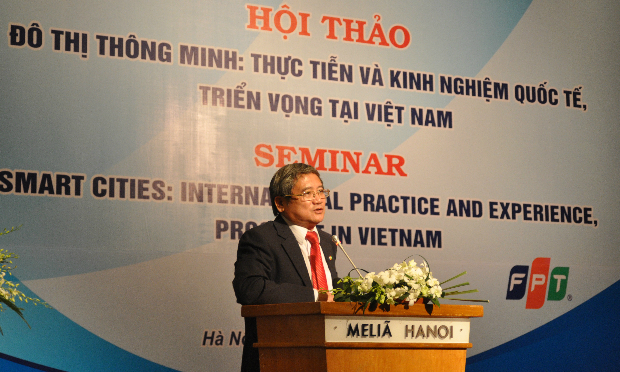
Joining the process of constructing cities for more than 20 years, FPT successfully implemented many projects in the field of public service such as e-government, core solution for social insurance; solutions for tax, treasury management, and electronic customs ... The common points shared by these projects are integrated services and collaboration with industries, similar to Korea’s approach to urbanization.
However, according to the speaker Lee Jae Yong, when Korea deployed mart cities, one of the key issues was taking advantage of the capital. In Korean urban planning law, part of profits by the units would be reinvested in urban transition.
According to FPT IS CEO Pham Minh Tuan, it was the most important for enterprises which participated in building urban areas to evaluate potentials of projects. Also, the main target was not to get profit but ensure benefits projects brought to the community and society.
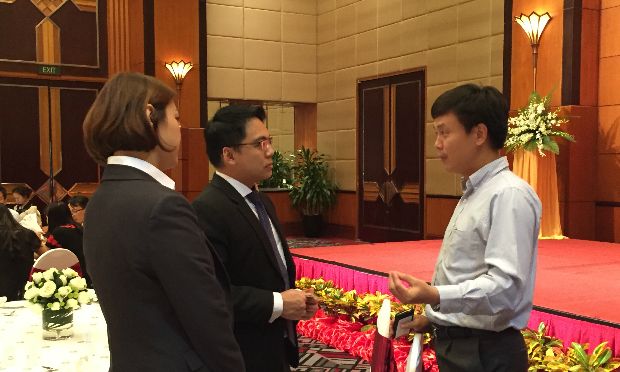
FPT IS CEO Pham Minh Tuan highly had a high opinion of understanding people’ habits during the process of building smart cities.
In the terms of competitiveness, FPT IS CEO confirmed that FPT still had "good competition" with the foreign firms involved in the process of urbanization. "Every enterprise has its own way to go. As smart solutions need people’s welcome, they must close people’s culture and habits. It is advantage that FPT possesses in this process. However, FPT is cooperating with foreign enterprises, taking their technology platform to Vietnam reasonably”, said Mr. Tuan.
The workshop by the Central Committee of Vietnam Fatherland Front was an important forum to introduce and promote ideas of building smart cities to numerous policy makers and the people. In the framework of the conference, international experts from the US, Japan, Korea and Singapore shared the lessons in some developed countries and also introduced some potential models at the local level.


